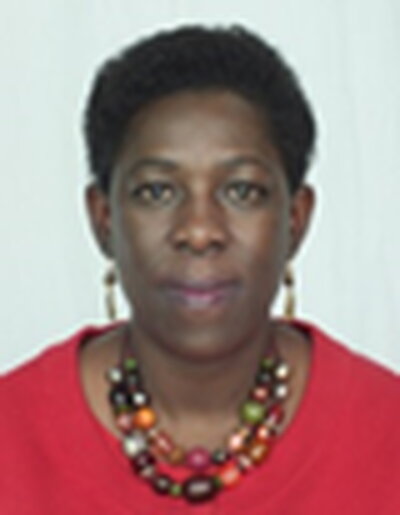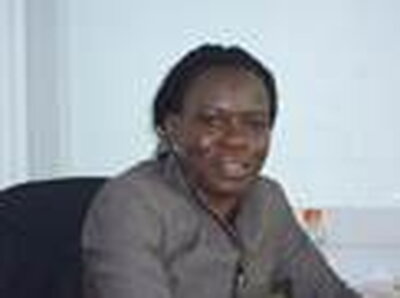
Africa and Information Technology

The conference, attended by more than 150 people, brought together online educators from the continent with their U of I counterparts. After the opening by Provost Adesida, Dr. Atieno Adala (photo at left) from the African Virtual University (AVU) presented a keynote that highlighted the work of AVU, which specializes in online courses in Math and Science. This virtual university, which has learning centers in nine African countries, has reached over 40,000 students. But Adala focused considerable attention of the efforts of AVU to avoid becoming mere local vehicles for curriculum designed in the global North. You can view a short interview CAS did with Dr. Adala below:
Another highlight of the conference was the presentation by U of I Professors Rob Rutenbar and Deanna Raineri. To the surprise of the audience they revealed that U of I has already delivered or put in place online courses that reach 300,000 students around the world. Rutenbar gave a detailed account of his own efforts in delivering a Coursera course in Computer Science during spring semester 2013. Some 17,000 initially enrolled in the course but less than ten percent completed it. Professor Rutenbar estimated that setting up and running the course took him about 30 hours per week. This presentation gave attendees a much better idea of the scope of U of I’s online work and the type of faculty labor that is required to grow this medium. A number of other questions also arose during intense discussions, particularly concerns about whether models used for computer science could apply equally well in other subject areas.

The other major theme of the conference was open learning and open access beyond online courses. Laura Czerniewicz (photo at left) of the University of Cape Town outlined efforts at her institution to move toward open access for all academic research materials and the challenges of changing both attitudes and technology to deal with such a transformation. Illinois is a leader in the U.S. in open access and local faculty practitioners such as Barbara Ford outlined current work at U of I. Watch CAS interview with Professor Czerniewicz below:

Lastly, creative initiative by a number of speakers came to the fore. Of particular interest were the educational games developed by University of Ibadan Computer Science Professor Yetunde Folajimi (photo at right). Her work connected well with the efforts by U of I’s Scientific Animations Without Borders (SAWBO) headed by Professor Barry Pittendrigh who outlined SAWBO’s work. For an interview with Professor Folajimi, click the video below:
All in all, the conference was a path breaker, bringing the realities of technological advances in Africa to a U of I audience and prompting lots of discussions about future partnerships between Illinois faculty and institutions on the African continent.